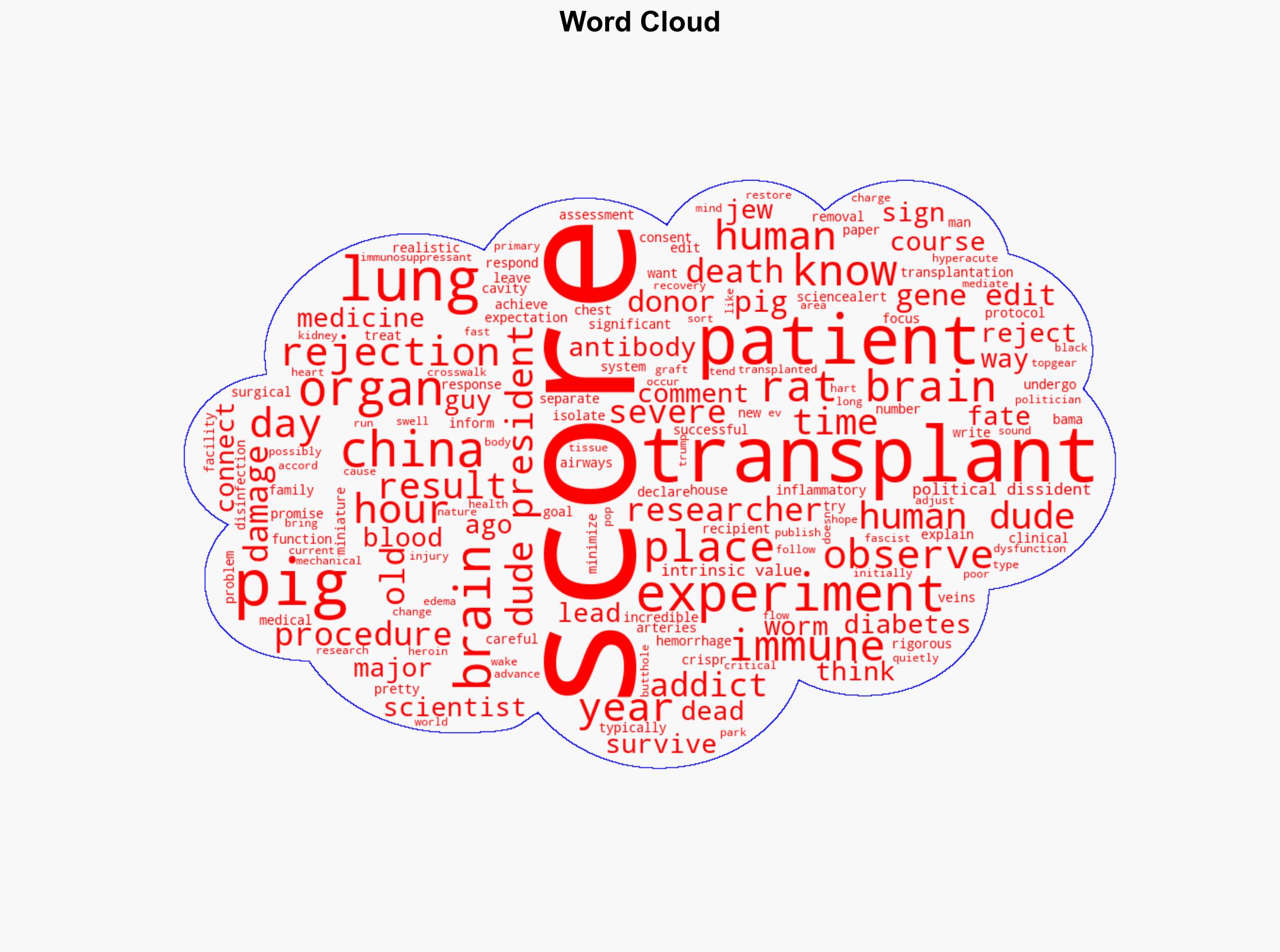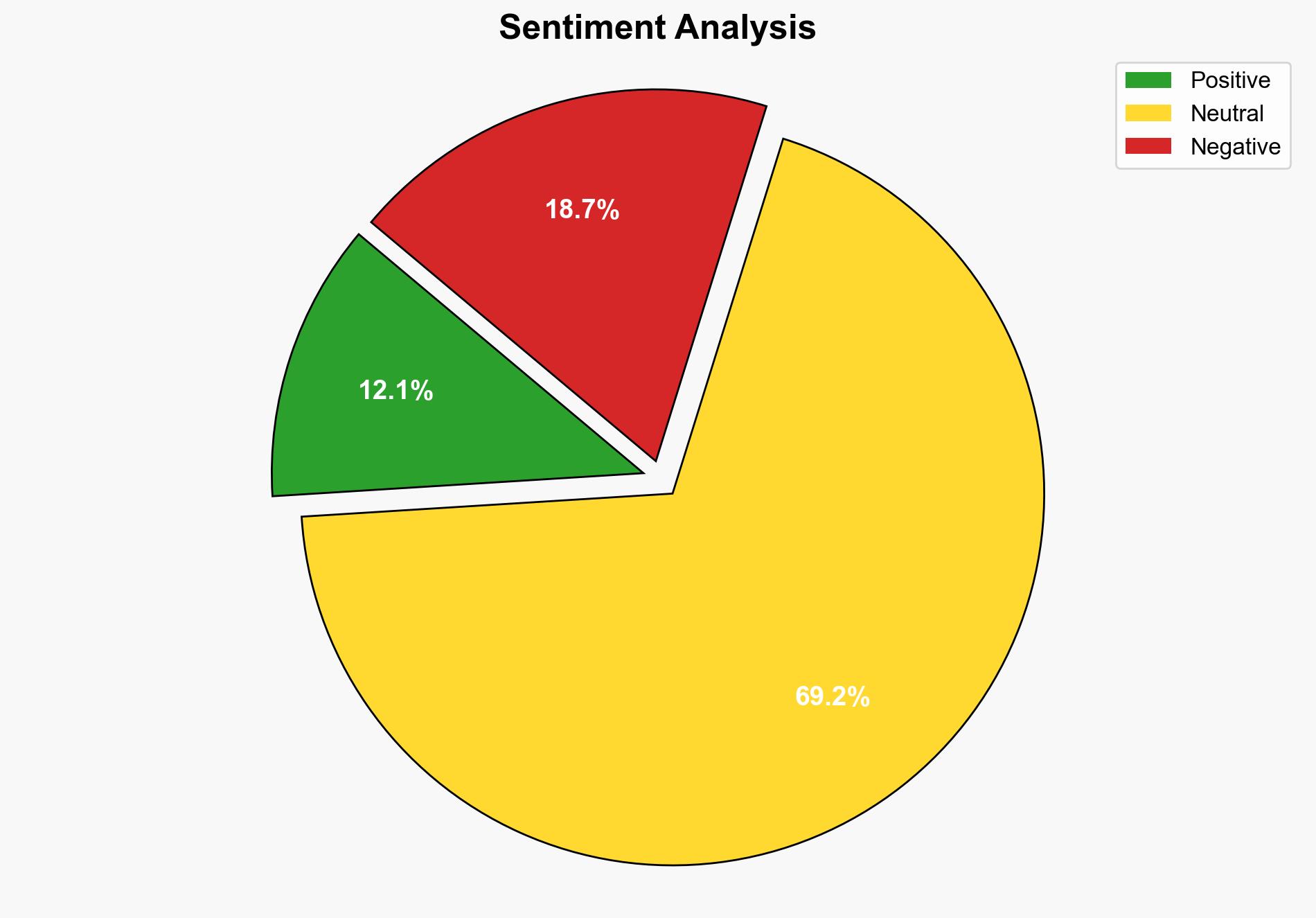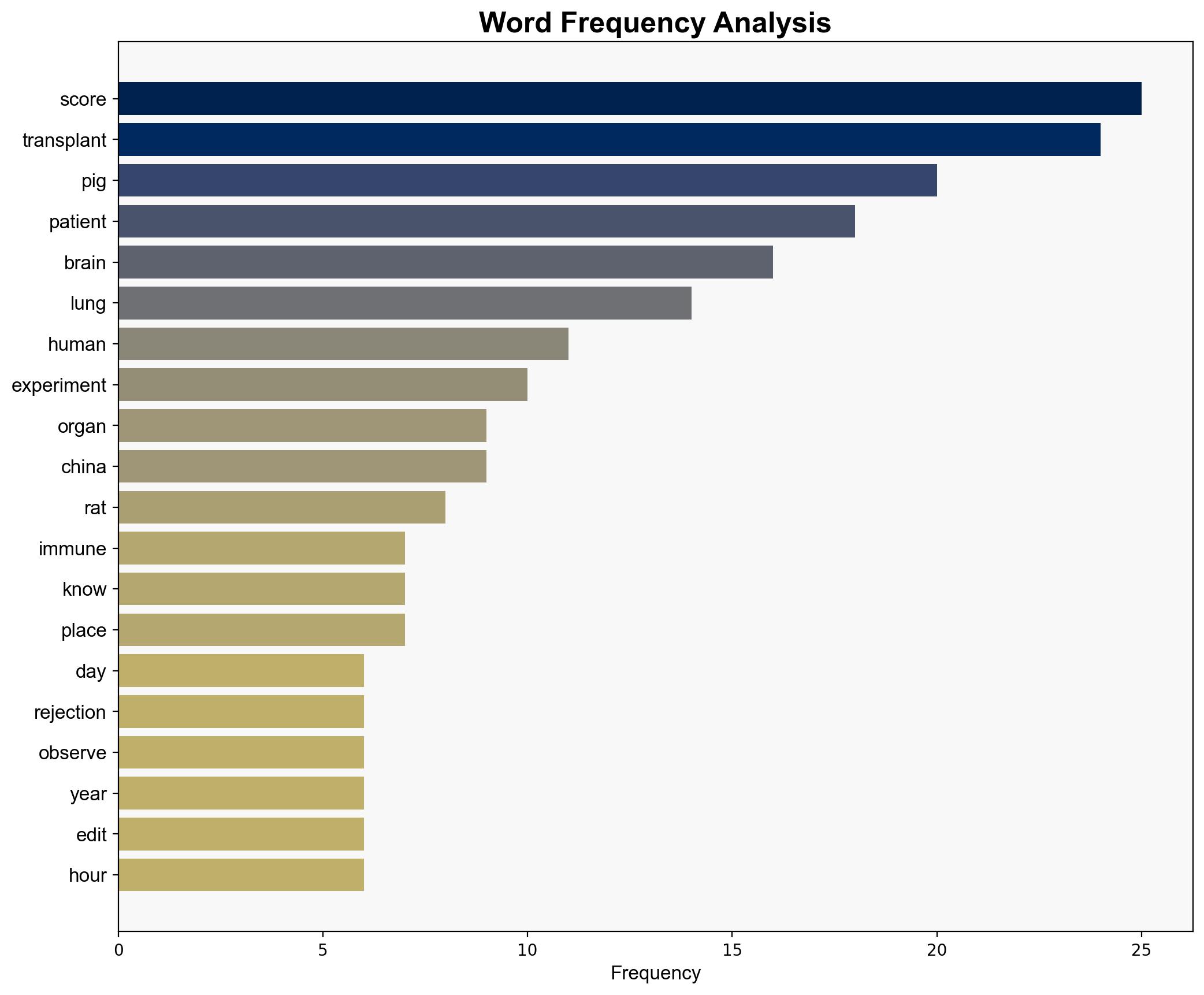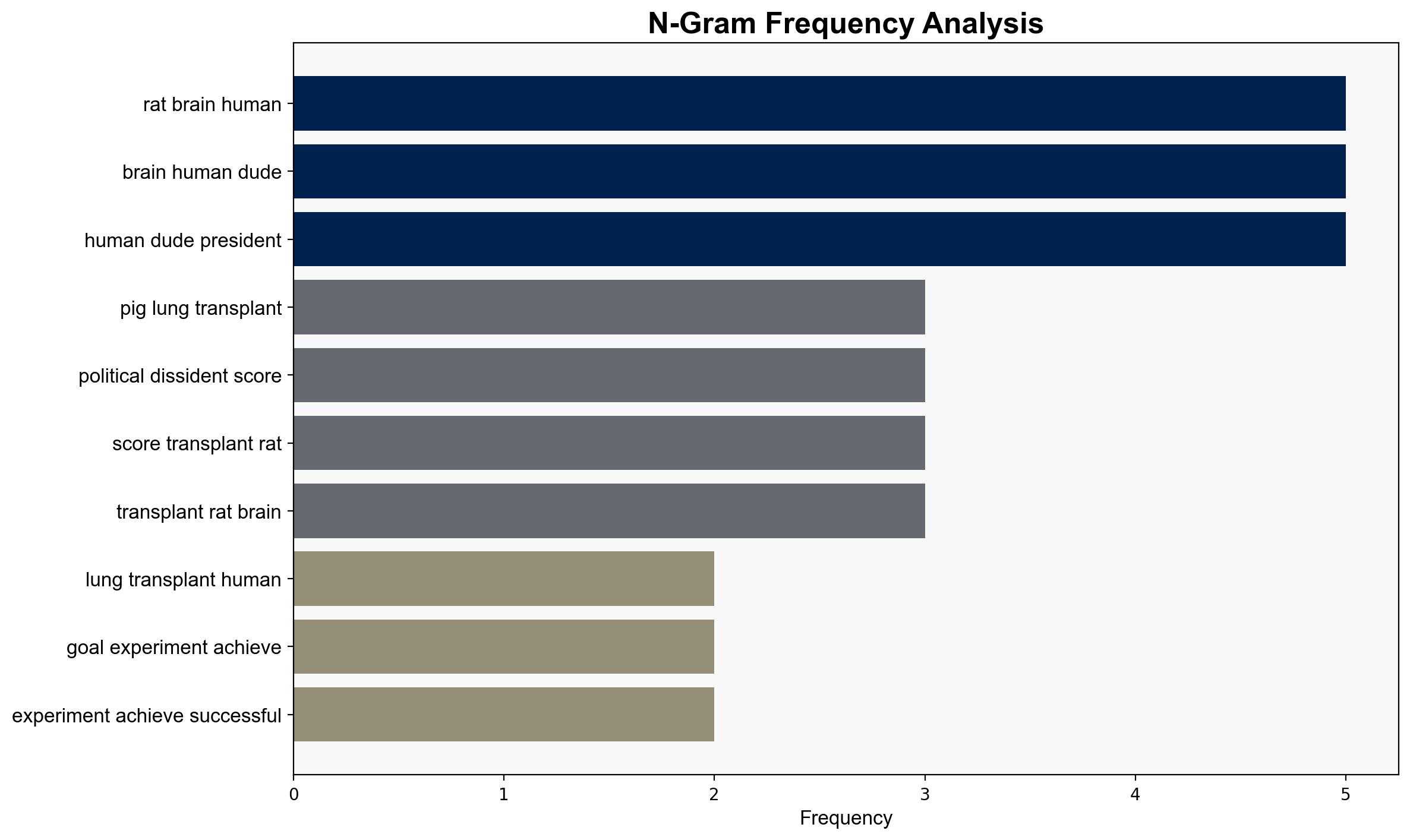Pig Lung Transplanted Into a Human In Major Scientific First – Slashdot.org
Published on: 2025-08-27
Intelligence Report: Pig Lung Transplanted Into a Human In Major Scientific First – Slashdot.org
1. BLUF (Bottom Line Up Front)
The experiment involving the transplantation of a genetically modified pig lung into a human represents a significant scientific advancement with both promising potential and substantial challenges. The hypothesis that this experiment could pave the way for future xenotransplantation is better supported. However, the risk of organ rejection and ethical concerns remain critical barriers. Confidence level: Moderate. Recommended action: Monitor developments in xenotransplantation and assess ethical frameworks.
2. Competing Hypotheses
1. **Hypothesis A**: The successful transplantation of a pig lung into a human will lead to breakthroughs in xenotransplantation, eventually addressing organ shortages.
– **Supporting Evidence**: The experiment demonstrated initial success in transplantation, and the use of CRISPR gene-editing to minimize immune response is a significant scientific advancement.
2. **Hypothesis B**: The challenges observed, such as organ rejection and ethical concerns, will limit the practical application of xenotransplantation in the near future.
– **Supporting Evidence**: The experiment resulted in organ rejection and severe lung injury, indicating significant hurdles remain. Ethical concerns about using brain-dead patients and genetically modified animals may impede progress.
3. Key Assumptions and Red Flags
– **Assumptions**:
– Hypothesis A assumes continued advancements in genetic modification and immunosuppressant management will overcome rejection issues.
– Hypothesis B assumes that current challenges are insurmountable in the short term.
– **Red Flags**:
– The experiment’s reliance on a brain-dead patient raises ethical questions.
– Potential bias in reporting success without fully addressing the severity of complications.
4. Implications and Strategic Risks
– **Economic**: Successful xenotransplantation could reduce healthcare costs related to organ shortages.
– **Geopolitical**: Advances in biotechnology could lead to international competition and regulatory challenges.
– **Psychological**: Public perception of genetic modification and ethical concerns could influence policy and funding.
5. Recommendations and Outlook
- Monitor scientific developments and regulatory changes in xenotransplantation.
- Engage in ethical discussions to establish guidelines for future experiments.
- Scenario Projections:
– **Best Case**: Overcoming current challenges leads to routine xenotransplantation, alleviating organ shortages.
– **Worst Case**: Ethical backlash and technical failures halt progress, leading to increased organ scarcity.
– **Most Likely**: Incremental progress with ongoing ethical and technical challenges.
6. Key Individuals and Entities
– Researchers affiliated with Guangzhou Medical University.
– CRISPR gene-editing technology developers.
7. Thematic Tags
biotechnology, medical ethics, genetic engineering, healthcare innovation





